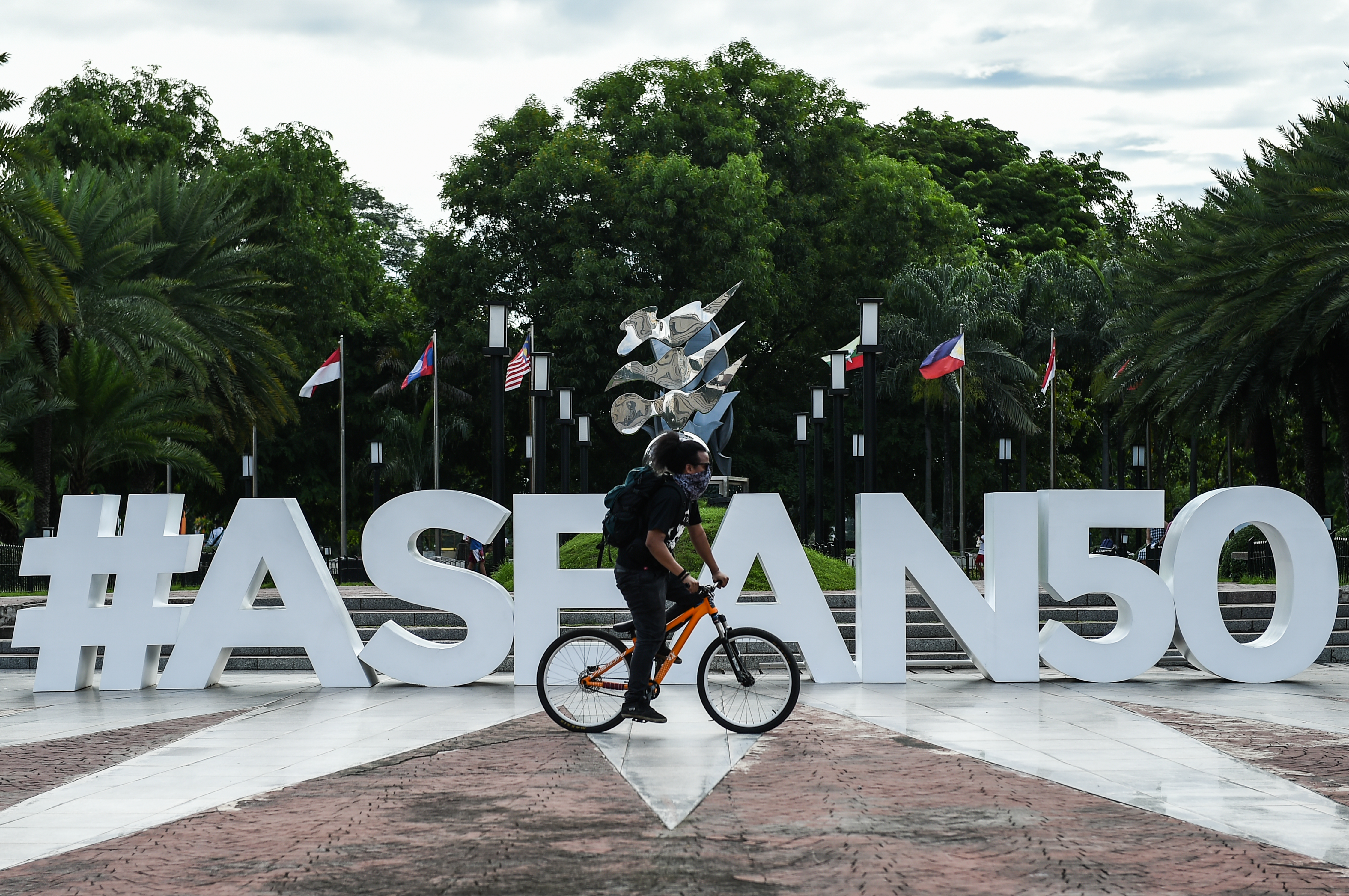A man rides his bicycle in front of the ASEAN logo near the venue for the Association of Southeast Asia Nations (ASEAN) Regional Forum (ARF) meeting in Manila on August 4, 2017. (AFP Photo/Mohd Rasfan)
The private sector's role in enhancing shared prosperity in ASEAN must be facilitated by an enabling environment for an efficient cross-border business transaction, says Bank Negara Malaysia deputy governor Abdul Rasheed Ghaffour.
Abdul Rasheed said this has been achieved through greater financial integration in ASEAN including deeper banking integration, smoother capital mobility and efficient payment and settlement systems.
"ASEAN central banks have made significant strides towards this end, but by no means will we coast on by. We will continue to champion financial integration that benefits all," he said during the ASEAN@50 Conference.
He said according to a study by Asian Development Bank in 2013, banking integration mobilises savings towards more productive investment, thereby increasing productivity and accelerating growth.
Abdul Rasheed said this study also showed that smoother capital mobility will facilitate more competitive and productive cross-border lending and borrowing while promoting financial sector and capital market development.
He said an efficient cross-border payment and settlement systems promotes cost-effective transactions by reducing the cost of doing business.
"Like it or not, the path to achieving the strategic objectives of the ASEAN Economic Community (AEC) 2025 will be filled with hurdles. The pace of convergence within ASEAN would be shaped by members' different levels of development," he said.
He said it is harder for countries with resource constraints to shoulder the high costs involved in undertaking structural and institutional changes, which are required for effective integration.
"In overcoming such hurdles, I stand proud in acknowledging that ASEAN adopts a gradual and phased-in approach that ensures a win-win situation for all.
"To illustrate this, let me share with you an anecdote from ASEAN's financial integration experience under the AEC. The core principles of our framework are inclusiveness and readiness," he said.
Citing an example, under the ASEAN Banking Integration Framework, he said two or more ASEAN countries can liberalise their banking sectors if they are mutually ready.
"But what if a member is not ready? Do we leave them behind? The answer is, no, we do not. Instead, ASEAN countries help each other by providing capacity building to those who need them the most.
"This pragmatic approach is unique, but it allows us to continue pursuing integration without compromising national priorities," he said.
In 2015, ASEAN contributed more than 7% to the world's economy and its strong trade performance has contributed to increased employment by about 70 million over the past 17 years - enabling better livelihoods of households.
Millions have been lifted out of poverty with the significant rise of ASEAN's gross domestic product (GDP) per capita from US$1,054 in 1996 to US$4,000 in 2016.
Moving forward, Abdul Rasheed said greater investment by the private sector in human capital development and innovation is critical for us to maintain the current momentum.
He said the return on investment in these two areas will be visible in the reduction of the development gap among ASEAN countries.
Abdul Rasheed said public-private partnerships to address this gap is essential to foster sustainable economic growth and achieve a globally competitive ASEAN.
